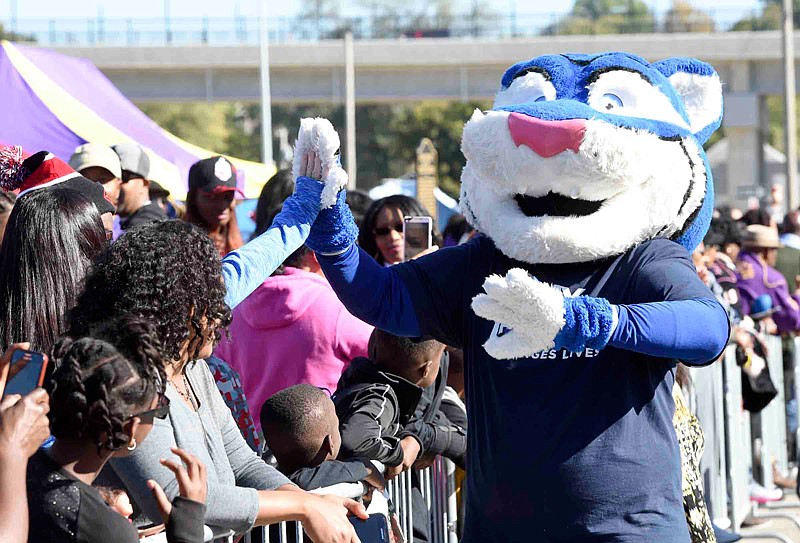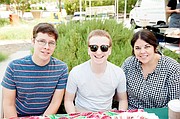Members of the family of one of the founders of Lincoln University say they are proud to see the school flourishing as it celebrates its 150th anniversary.
Siblings Douglas Kitchen, Wayne Kitchen and Dr. Herbert Kitchen were marshals during Saturday's LU Homecoming parade.
The Kitchens' great-great-grandfather, Caleb Lindsey, served in the 62nd Colored Infantry during the Civil War. Members of that group, along with the 65th Colored Infantry, helped found what is today Lincoln University.
"These men who were slaves, who were then able to fight in the Civil War, then pulled their money together to put this school here in the state of Missouri," Herbert said.
There have been several generations of Kitchens who attended and graduated from the university, studying business, education and the fine arts.
"When our father, Edgar Kitchen, came in 1944 from our hometown of Sedalia, it was during the days of segregation," Herbert said. "He would tell us stories about how he could not go to various places and had to sit in the balcony at the theater, but there have been lots of changes over the last 70 years."
Herbert noted in the late 19th and early 20th centuries there were more than 150 black colleges in the country. Now, there are fewer than 100.
"That shows Lincoln has been tested, tried and stayed the course of educating people," he said.
Herbert noted three other members of his family, Barbara Kitchen Mitchell, Milton Kitchen and Carla Kitchen Halane, along with some of their children, also attend Lincoln.
"Our parents, aunts and uncles all instilled in us that education is the key to unlock any door out there," Herbert said. "We must instill that into the next generation. Our parents could have sent us to any school in the country, but they chose Lincoln. And that was the best choice they could have made."
When Douglas came to Lincoln in the fall of 1963, he said it was like leaving a small town and coming into a big city.
"To see black people working united with white people was new to me," he said. "The university has grown in many ways and is working to expand the culture and economic success for blacks, whites and all peoples that come to Lincoln. This has made LU a place where everybody has an opportunity - an opportunity to succeed. These students are given a great education. I'm glad to see the school still doing the same things it was started for - educating young people of all nationalities."
Wayne said coming to Lincoln opened his eyes to the possibilities of black people doing things he'd never seen done before.
"In Sedalia, the schools were segregated, and when I came to Lincoln, I saw black professors, black leadership, black student leaders and other professionals come together to make Jefferson City what it is today."
See also:
Lincoln has difficulty finding end zone in loss to Saint Joseph's


